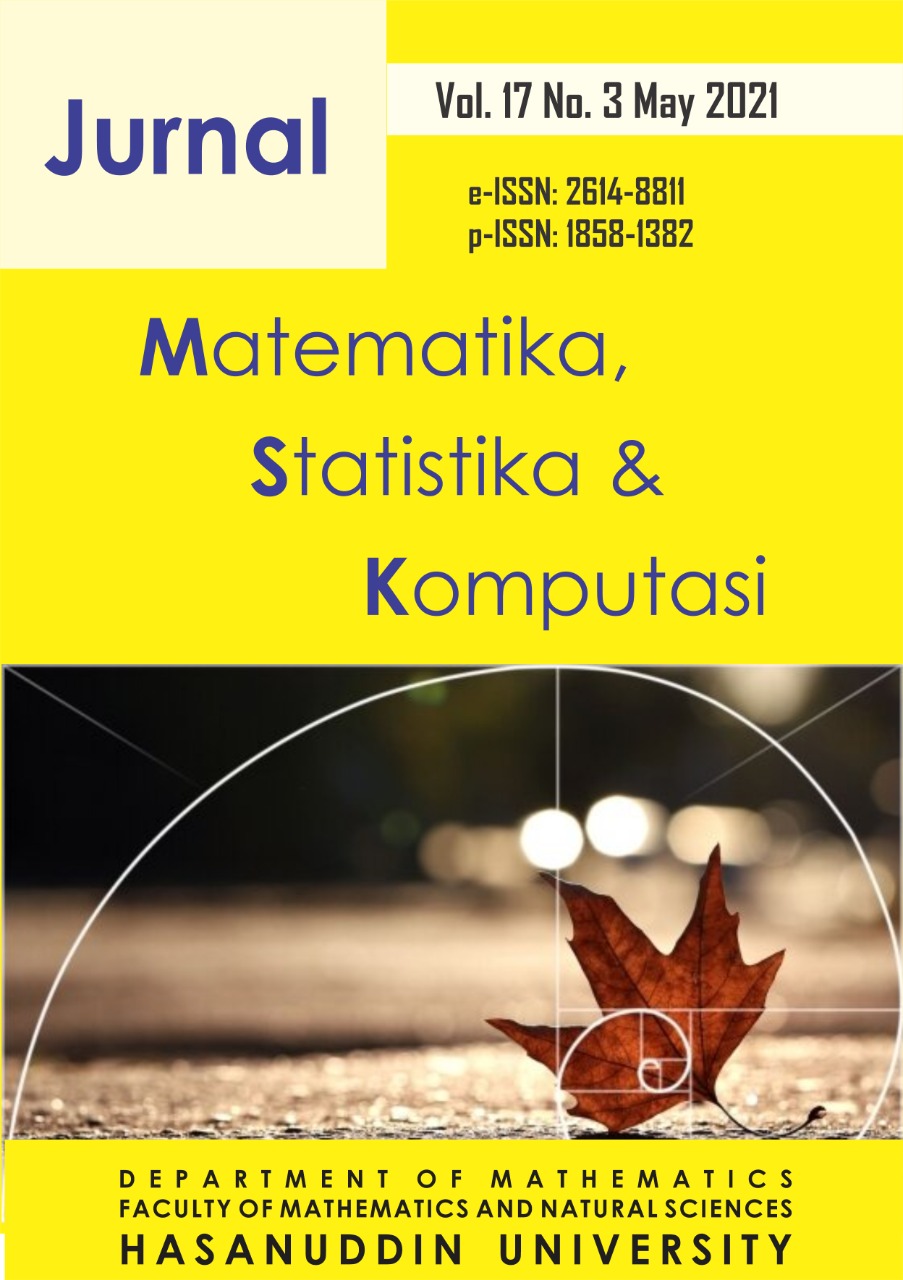A Two-Dimensional Mathematical Model of Carbon Dioxide (CO2) Transport in Concrete Carbonation Proses
DOI:
https://doi.org/10.20956/j.v17i3.12227Keywords:
Concrete carbonation, Carbon dioxide, Transport phenomena, Diffusion equation, Separation of variables methodAbstract
A new two-dimensional mathematical model was developed to describe the transport phenomena of carbon dioxide in concrete structures. By treating transport phenomena as a concrete carbonation process, a two-dimensional linear partial differential equation was derived based on the principle of mass balance and convective-dispersive Equation. It was found the analytical solution by the separation of variables method combined with some substitution approaches. The numerical results are presented to illustrate the practical application of this model.
References
Alkam M K and Alqam M P. 2015 Prediction of the Service Life of a Reinforced Concrete Column under Chloride Environment J. Advances in Materials Sci and Eng. 2015 1-8
Koch G H, Brogers P H, Thompson N, Virmani Y P, and Payer J H. 2002 Corrosion Cost and Preventive Strategies in the United States (Washington DC: U.S. Department of Transportation) Federal Highway Administration Report No. FHWA-RD-01–156
Liang M T and Lin S M. 2003 Mathematical Modeling and Applications For Concrete Carbonation J. of Marine Science and Technology. 11(1) 20-33
Moore H 2012 MATLAB for Engineers (New Jersey: Pearson)
Papadakis V G, Vayenas C G, and Fardis M N. 1991 Experimental Investigation and Mathematical Modeling of the Concrete Carbonation Problem J. Chemical Engineering Science. 46(5-6) 1333-1338
Silva A, Neves R, and Brito D J. 2014 Statistical modelling of carbonation in reinforced concrete J. Cement & Concrete Composites. 50 73-81
Zhang Q. 2016 Mathematical modeling and numerical study of carbonation in porous concrete materials J. Applied Mathematics and Computation. 281 16-27
Downloads
Published
How to Cite
Issue
Section
License
Copyright (c) 2021 Author and publisher

This work is licensed under a Creative Commons Attribution 4.0 International License.

This work is licensed under a Creative Commons Attribution 4.0 International License.
Jurnal Matematika, Statistika dan Komputasi is an Open Access journal, all articles are distributed under the terms of the Creative Commons Attribution License, allowing third parties to copy and redistribute the material in any medium or format, transform, and build upon the material, provided the original work is properly cited and states its license. This license allows authors and readers to use all articles, data sets, graphics and appendices in data mining applications, search engines, web sites, blogs and other platforms by providing appropriate reference.







